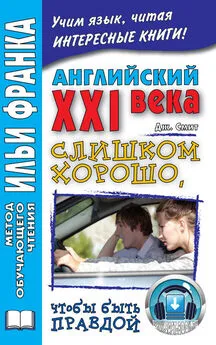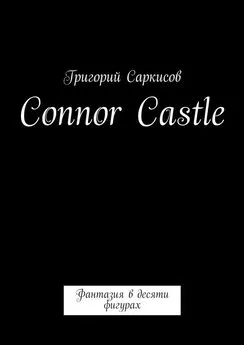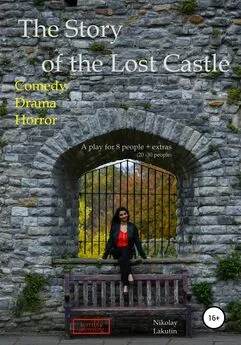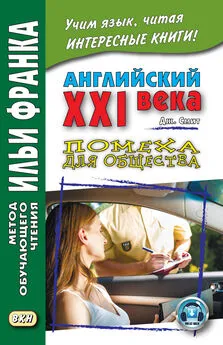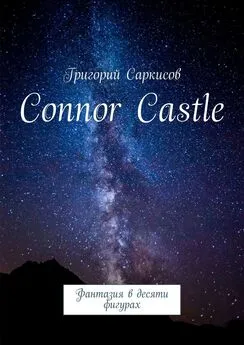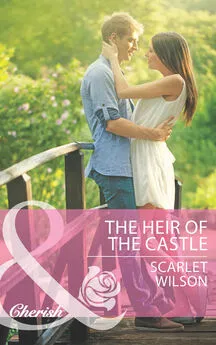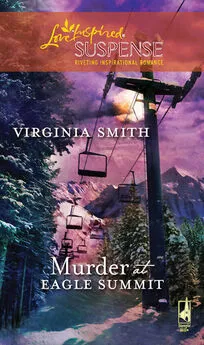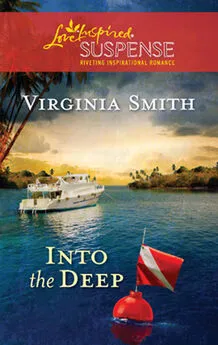Dodie Smith - I Capture the Castle
- Название:I Capture the Castle
- Автор:
- Жанр:
- Издательство:неизвестно
- Год:неизвестен
- ISBN:нет данных
- Рейтинг:
- Избранное:Добавить в избранное
-
Отзывы:
-
Ваша оценка:
Dodie Smith - I Capture the Castle краткое содержание
I Capture the Castle - читать онлайн бесплатно полную версию (весь текст целиком)
Интервал:
Закладка:
The lawyers wrote asking us to come to London and pack the clothes
ourselves; they said they would pay all expenses.
The prospect of a day in London was heaven, but the problem of what to wear was sheer hell, particularly for Rose--my clothes don't bear
thinking about, so I just don't think about them. We sponged and
pressed our winter coats and tried to believe that they looked
better.
And then the weather turned fine--those coats were utterly revolting in the brilliant sunshine. I had a sudden idea.
"Let's wear our old white suits," I said.
Aunt Millicent had them made for us just before the row about Father
marrying Topaz. They are some kind of silky linen, very plain and
tailored. Of course they have had very hard wear and mine is too
short, though it has been let down to the last quarter-inch; but they are much the nicest things we have and, by a miracle, had been put away clean.
"They'd be all right if it was midsummer," said Rose, when we tried them on.
"But in April!" Still, we decided to wear them if the fine weather held. And when we woke up yesterday it was more like June than April.
Oh, it was the most glorious morning!
I suppose the best kind of spring morning is the best weather God has to offer. It certainly helps one to believe in Him.
Mr. Stebbins lent Stephen his cart to drive us to the station and even the horse seemed to be enjoying himself.
"Did you ever see the sky so high?" I said. And then I felt ashamed to be so happy, knowing that I couldn't have been if Aunt Millicent had stayed alive--and it probably hurt her to die, poor old lady. We were driving through Godsend and the early sun was striking the moss-grown headstones in the churchyard.
I tried to realize that I shall die myself one day; but I couldn't
believe it- and then I had a flash that when it really happens I shall remember that moment and see again the high Suffolk sky over the old, old Godsend graves.
Thinking of death--strange, beautiful, terrible and a long way
off--made me feel happier than ever. The only depressing thing was
seeing Scoatney Hall through the trees--and that only damped me on
Rose's account for what care I for Cottons his (anyway, what cared I
then?) I was careful to avoid her eye until we were well past the park, spending two tactful minutes buttoning a one-buttoned shoe.
We got to Scoatney station in good time. Rose thought we should take
first-class tickets as the lawyers would pay.
"But suppose they don't pay at once?" I said. We had Stephen's wages to see us through the day, but Topaz was counting on getting them back.
In the end, we just took cheap day-tickets.
Stephen kept begging me to be careful of the traffic;
he even ran along with the train to remind me again. Then he stood
waving, smiling but a bit wistful-looking. It struck me that never in his life has he been to London.
It was queer how different things felt after we changed from our little toy train, at King's Crypt. The feel of the country went--it was as if the London air was trapped in the London train. And our white suits
began to look peculiar. They looked much, much more peculiar when we
got to London; people really stared at us. Rose noticed it at once.
"It's because they admire our suits," I said, hoping to soothe her
--and I did think they looked nicer than most of the drab clothes women were wearing.
"We look conspicuous," she said, with deepest shame. Little did she know how much more conspicuous we should look before we got home.
It was three years since we had been in London.
We never knew it well, of course; yesterday was the first time I ever walked through the City. It was fascinating, especially the
stationers' shops- I could look at stationers' shops for ever and ever.
Rose says they are the dullest shops in the world except, perhaps,
butchers'.
(i don't see how you can call butchers' shops dull; they are too full of horror.) We kept getting lost and having to ask policemen, who were all rather playful and fatherly. One of them kindly held up the
traffic for us, and a taxi-driver made kissing noises at Rose.
I had hoped the lawyers' office would be old and dark, with a Dickensy old lawyer; but it was just an ordinary office and we only saw a clerk, who was young, with very sleek hair. He asked us if we could find our way to Chelsea by "bus.
"No," said Rose, quickly.
He said: "Ok. Take a taxi."
I said we were a little short of change.
Rose flushed scarlet. He gave her a quick look, then said, "Wait a sec."
--and left us.
He came back with four pounds.
"Mr. Stevenage says you're to have this," he told us.
"It'll take care of your fares, taxi to Chelsea, taxi to get the stuff to the station, and a slap-up lunch. And you must nip back here with
the key of the house and sign a receipt. See ?"
We said we saw, and went. Rose was furious that no one more important than a clerk had bothered to see us.
"It's not respectful to Aunt Millicent," she said, indignantly.
"Treating us like small fry!"
I didn't mind what kind of fry I was, with four pounds in hand.
"Let's find our way by 'bus and save the taxi money," I suggested.
But she said she couldn't stand being stared at any more.
"We must be the only girls in London wearing white."
Just then a bus conductor said: "Hop on, snowdrops." She haughtily hailed a taxi.
The lily-pond was dry in Aunt Millicent's little flagged garden. I
hoped the goldfish had found good homes.
We unlocked the front door. I was surprised to find the hall quite
bare--I hadn't realized that all the furniture had been taken away.
"It does feel queer," I said when the door was closed and the sunny day shut out.
"It only feels cold," said Rose.
"I
suppose the clothes'll be in her bedroom. I wonder if she died
there."
I thought it a tactless thing to wonder out loud.
On our way up we looked in at the double drawing-room. The two tall
windows stared across the Thames; it was dazzlingly light.
The last time I had seen that room it had been lit by dozens of candles for a party. That was the night we first met Topaz.
Macmorris's portrait of her had just been exhibited and Aunt Millicent asked him to bring her with him. She wore the misty blue dress he
painted her in and he had lent her the great jade necklace. I remember being astonished at the long, pale hair hanging down her back.
And I remember Father talking to her all evening and Aunt Millicent, in her black velvet suit and lace stock, glaring at him.
There was nothing in the big front bedroom, much to my relief;
though I can't say it felt as if anyone had died there, merely cold and empty. The clothes were in the little back dressing-room, lying in
heaps on the floor, with two old black leather trunks for us to pack
them in. There was very little light because the green venetian blind was down. The cord was broken so we couldn't get it up, but we managed to tilt the slats a little.
Aunt Millicent's old black military cloak lay on top of one of the
heaps. It used to frighten me when I was little; I suppose it made me think of witches. It was frightening yesterday, too, but in a
different way-it seemed somehow to be part of a dead person.
All the clothes did. I said:
"Rose, I don't think I can touch them."
"We've got to," she said, and started to rummage through them.
Perhaps if we had ever been fond of poor Aunt Millicent we might have felt a kindness for her clothes. Perhaps if they had been pretty and
feminine it wouldn't have been so horrible. But they were mostly
heavy, dark coats and skirts and thick woollen underwear. And rows and rows of flat-heeled shoes on wooden trees, which upset me most of all--
I kept thinking of them as dead feet.
"There are dozens of linen handkerchiefs, that's something," said Rose.
But I hated the handkerchiefs -and the gloves and the stockings; and a dreadful pair of broken-looking corsets.
"People's clothes ought to be buried with them," I said.
"They oughtn't to be left behind to be despised."
"I'm not despising them," said Rose.
"Some of these suits are made of wonderful cloth."
But she was bundling them into the trunks in a somehow insulting way. I made myself take them out and fold them carefully, and had a mental
picture of Aunt Millicent looking relieved.
"She always liked her suits to be well-pressed and brushed," I said.
"As if it mattered to her now!" said Rose.
And then we heard someone coming upstairs.
I went icy cold from my heart up to my shoulders.
Then the fear got into my throat so that I couldn't speak. I just
stared at Rose, in agony.
"It isn't, it isn't!" she gasped.
"Oh, Cassandra--it isn't."
But I knew that she thought it was. And I knew, in the way I so often know things about Rose, that she had been frightened ever since we
entered the house, that the casual way she handled the clothes had been all bluff. But I didn't know then that she was doubly frightened, that she thought if it wasn't Aunt Millicent coming up the stairs it was a tramp who had been hiding in the basement --that he would kill us both and put our bodies in the trunks.
Oh, wonderful Rose! With both these fears in her mind, she flung open the door and said: "Who's there?"
The lawyers" clerk stood outside.
"How dare you, how dare you ?" she cried, furiously.
"Sneaking into the house, terrifying my little sister--" "Don't, Rose!"
I said in a weak voice.
The poor clerk apologized profusely.
"And I only came to do you a good turn," he finished. Then he handed her a letter.
Rose read it.
"But we can't pay this!"
I snatched it from her. It was a reminder that money was owing for the cold-storage of some furs.
"You don't have to pay anything, I fixed that by telephone," said the clerk.
"We're your aunts' executors so we get her bills, see his That was actually on my desk when you came in this morning but I hadn't got
round to reading it. Those are your furs now."
"But Aunt Millicent never had any furs," I said.
"She thought they were cruel to animals." And I always thought she was right.
"Well, those belonged to her," said the clerk, "and cruel or not, you'd better pop along and get them. Furs are worth money."
I looked at the letter again. It didn't say what the furs were.
"They must be good ones if she paid out all that to store them," said the clerk.
"Tell you what, you shove all this stuff in the trunks and I'll take them down to the station--leave them in the Left Luggage Office for
you, see his And you cut along for the furs."
We bundled the clothes in hurriedly--I am ashamed to say I forgot about Aunt Millicent's dead feelings. The clerk and his taxi-driver dragged the trunks downstairs; then he got another taxi for us.
"Wish I could come with you and see the fun," he said, "but I'm due in the Courts at three." His hair was oily and his complexion spotty, but his heart was kind. Rose evidently thought so, too, be cause she
leaned out of the taxi and said she was sorry she had been so cross.
"Don't mention it," he said.
"I'm sure I'd have given myself a fright if I'd been you." Then the taxi started and he shouted after us: "Here's hoping they're sables."
We hoped so, too.
"They must be fairly new as she didn't have them when we knew her,"
said Rose.
"I expect her principles dwindled as she got older and colder."
Читать дальшеИнтервал:
Закладка:


